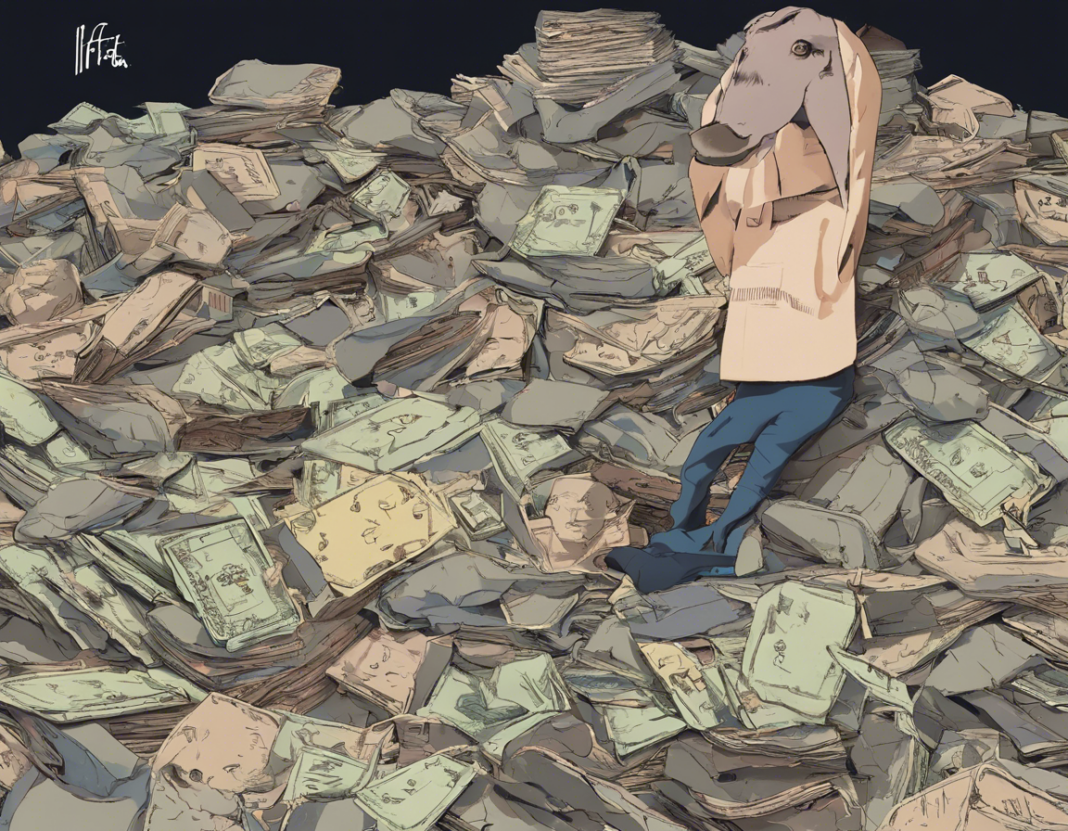When it comes to financial transactions, one aspect that is often shrouded in mystery is the concept of unclaimed lifafa. This practice, common in some cultures and communities, involves the giving of money in an envelope or packet (also known as lifafa) without revealing the identity of the giver. While this gesture is often done with good intentions, it can lead to complications and uncertainties, particularly when the recipient is unaware of the source of the funds. In this comprehensive article, we will delve into the intricacies of unclaimed lifafa, exploring its origins, implications, and ways to address any potential issues that may arise.
Origins of Unclaimed Lifafa
Unclaimed lifafa has its roots in cultural traditions and social customs, where it is considered a gesture of generosity and goodwill. The practice of giving money in a lifafa is often associated with celebrations, such as weddings, birthdays, religious festivals, and other special occasions. In many cultures, it is customary to offer monetary gifts in this discreet manner as a symbol of respect and affection. However, the anonymity of the giver can sometimes lead to confusion, especially if the recipient is unsure of who has given them the money.
Implications of Unclaimed Lifafa
While unclaimed lifafa is often intended as a kind and thoughtful gesture, it can raise questions and concerns, particularly in terms of financial transparency and accountability. In some cases, recipients may find themselves in a dilemma when they receive a significant sum of money without knowing the identity of the giver. This lack of transparency can lead to misunderstandings, suspicions, and even legal implications if the source of the funds is not clear. Additionally, unclaimed lifafa can create challenges in terms of tracking and reporting financial transactions, especially in formal settings such as banks and financial institutions.
Addressing Unclaimed Lifafa
To avoid potential complications associated with unclaimed lifafa, it is important for both givers and recipients to communicate openly and honestly. If you are giving money in a lifafa, consider including a note or message to indicate your identity and the purpose of the gift. This can help clarify any misunderstandings and ensure that the recipient appreciates the gesture fully. On the other hand, if you receive an unclaimed lifafa, it is advisable to approach the situation with tact and diplomacy. You may politely inquire about the source of the funds or express your gratitude without raising suspicions or causing discomfort.
Best Practices for Dealing with Unclaimed Lifafa
- Communication: Establish clear communication channels between givers and recipients to avoid confusion and uncertainty.
- Documentation: Keep records of all financial transactions, including gifts given and received, to maintain transparency and accountability.
- Clarity: Clearly indicate the purpose and source of any monetary gifts to prevent misunderstandings and promote trust.
- Consent: Obtain consent from the recipient before giving money in a lifafa to ensure that they are comfortable with the arrangement.
- Respect: Respect cultural norms and traditions related to gift-giving while also upholding ethical standards and financial regulations.
Frequently Asked Questions (FAQs)
- What is the significance of giving money in a lifafa?
-
Giving money in a lifafa is a gesture of generosity and goodwill, often done to show respect and affection during special occasions.
-
How can recipients handle unclaimed lifafa tactfully?
-
Recipients can politely inquire about the source of the funds or express gratitude without causing discomfort to the giver.
-
Are there any legal implications associated with unclaimed lifafa?
-
In some cases, unclaimed lifafa can raise legal concerns, especially if the source of the funds is unclear or if there are suspicions of illicit activities.
-
Is unclaimed lifafa a common practice in all cultures?
-
Unclaimed lifafa is more prevalent in certain cultures and communities where giving money discreetly is a customary practice during celebrations and gatherings.
-
How can individuals maintain financial transparency when dealing with unclaimed lifafa?
- By documenting all financial transactions, clarifying the purpose and source of gifts, and fostering open communication between givers and recipients, individuals can uphold financial transparency effectively.
In conclusion, unclaimed lifafa presents a unique blend of tradition, generosity, and ambiguity. By understanding its origins, implications, and best practices for handling such situations, individuals can navigate the complexities of unclaimed lifafa with grace and clarity. Transparency, communication, and respect are key principles to uphold when engaging in the practice of giving and receiving money in a lifafa, ensuring that the true intent of the gesture is preserved while mitigating any potential misunderstandings or complications that may arise.
